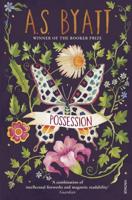Publisher's Synopsis
Pollyanna is a best-selling 1913 novel by Eleanor H. Porter that is now considered a classic of children's literature, with the title character's name becoming a popular term for someone with the same very optimistic outlook.Also, the subconscious bias towards the positive is often described as the Pollyanna principle. The book was such a success that Porter soon produced a sequel, Pollyanna Grows Up (1915 The title character is named Pollyanna Whittier, a young orphan who goes to live in Beldingsville, Vermont, with her wealthy but stern and cold spinster Aunt Polly, who does not want to take in Pollyanna, but feels it is her duty to her late sister. Pollyanna's philosophy of life centers on what she calls "The Glad Game," an optimistic and positive attitude she learned from her father. The game consists of finding something to be glad about in every situation, no matter how bleak it may be. It originated in an incident one Christmas when Pollyanna, who was hoping for a doll in the missionary barrel, found only a pair of crutches inside. Making the game up on the spot, Pollyanna's father taught her to look at the good side of things-in this case, to be glad about the crutches because "we didn't need to use them!" With this philosophy, and her own sunny personality and sincere, sympathetic soul, Pollyanna brings so much gladness to her aunt's dispirited New England town that she transforms it into a pleasant place to live. The Glad Game shields her from her aunt's stern attitude: when Aunt Polly puts her in a stuffy attic room without carpets or pictures, she exults at the beautiful view from the high window; when she tries to "punish" her niece for being late








